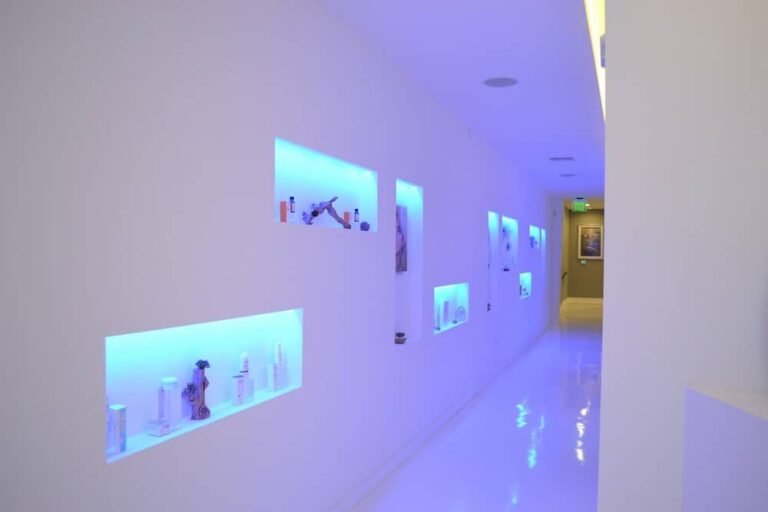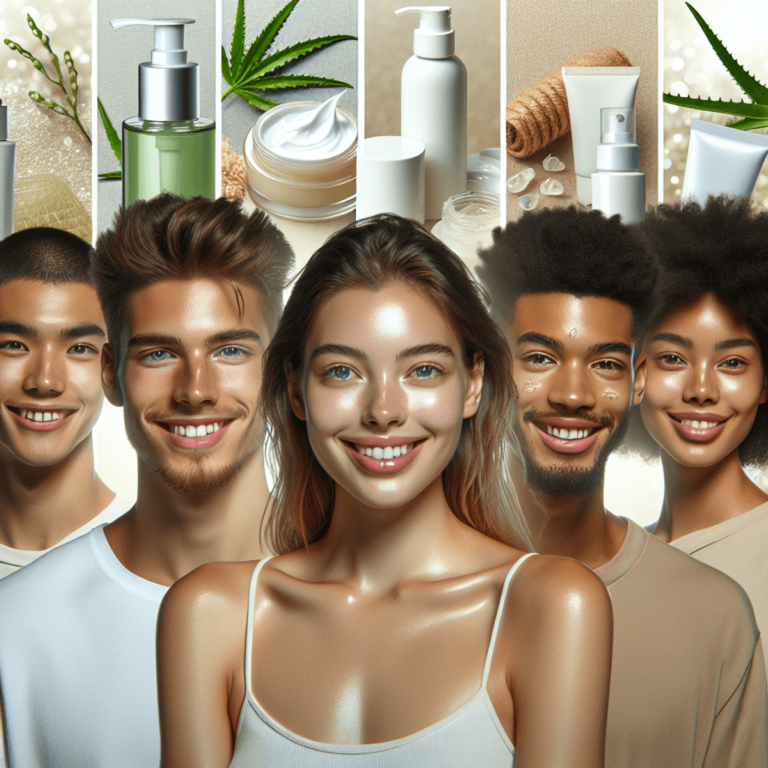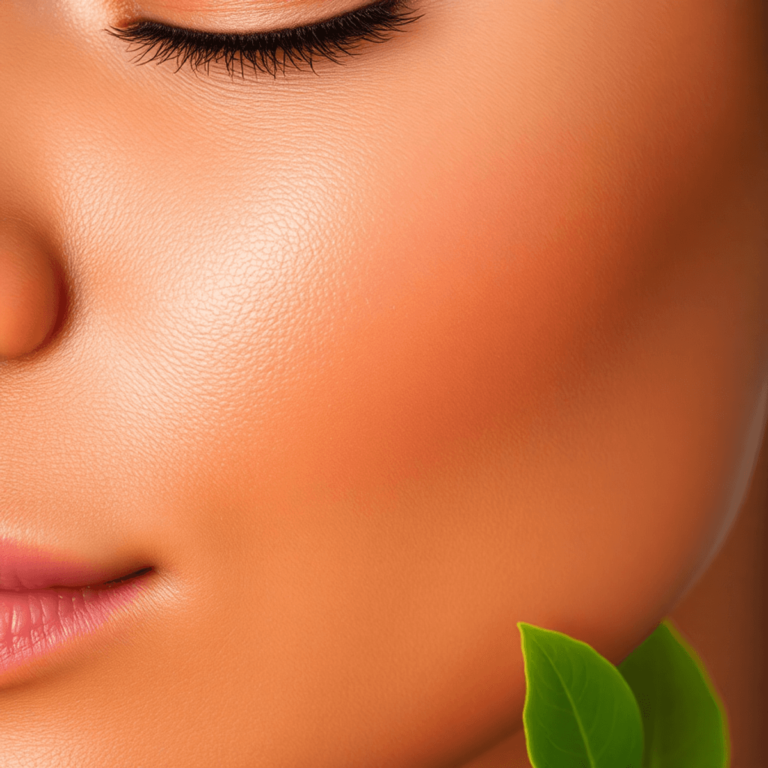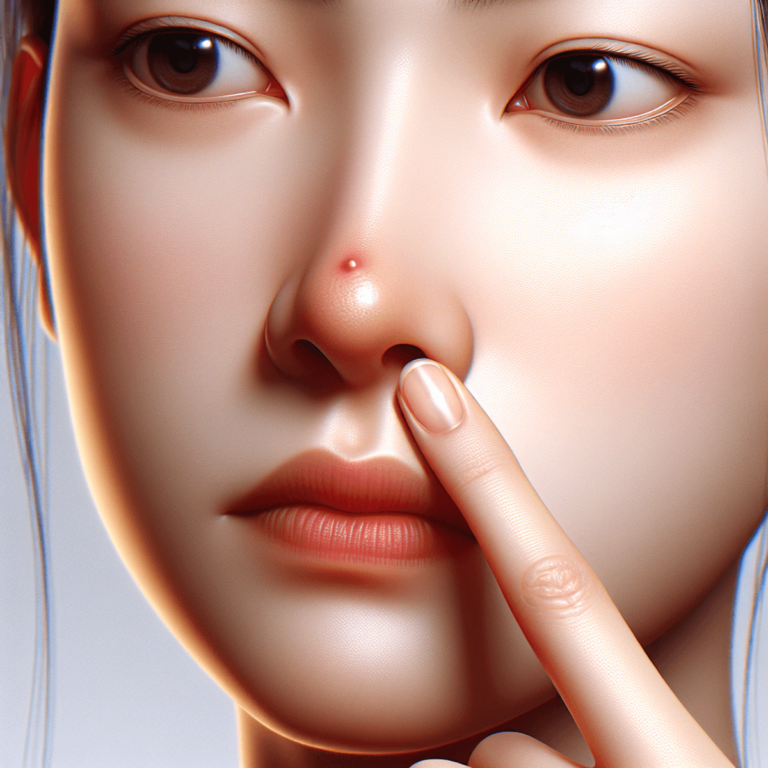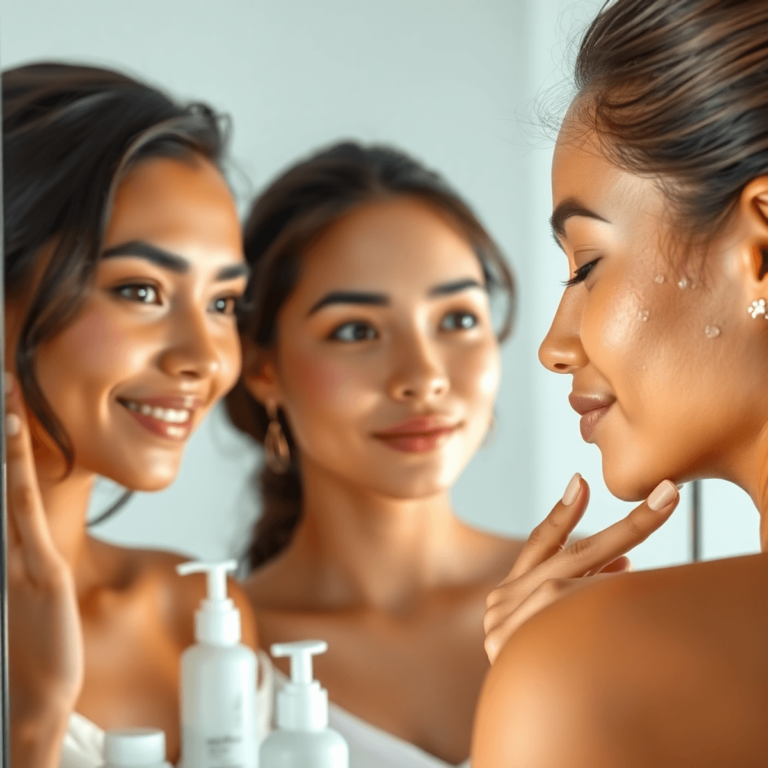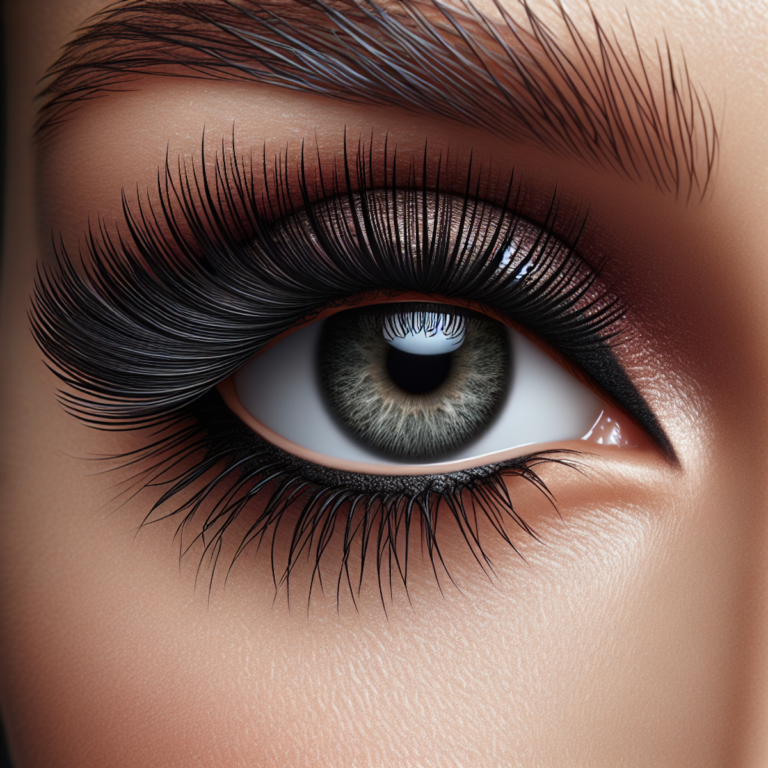Ways Get Rid of a Stubborn Pimple, According to Dermatologists

Introduction
Pimples, those pesky blemishes that seem to appear at the most inconvenient times, can be a real nuisance. Not only are they unsightly, but they can also be stubborn and difficult to treat. If you’ve ever found yourself desperately searching for ways to get rid of a stubborn pimple, you’re not alone.
But don’t lose hope just yet! With the right approach and expert advice from dermatologists, it is possible to effectively treat pimples and achieve clear skin. In this article, we will discuss various ways to tackle stubborn pimples based on the recommendations of dermatologists who are experts in skincare.
Key Takeaway: It’s possible to get rid of stubborn pimples with the right approach. In this article, we will discuss effective ways to treat pimples based on expert advice from dermatologists.
Throughout this article, we will explore different methods and techniques for treating pimples, including skincare ingredients, professional treatments, lifestyle changes, and home remedies. By understanding the underlying causes of pimples and implementing targeted solutions, you can take control of your skin health and say goodbye to those stubborn blemishes.
1. Skincare Ingredients for Treating Pimples
1.1 Salicylic Acid
Salicylic acid is a powerful ingredient known for its effectiveness in treating pimples. It works by exfoliating the skin and unclogging pores, making it an excellent choice for those dealing with stubborn acne.
- Exfoliation: Salicylic acid penetrates the oil in the skin and helps to exfoliate the pores, preventing them from becoming clogged and forming pimples.
- Unclogging Pores: By removing excess oil and dead skin cells, salicylic acid helps to unclog pores, reducing the likelihood of new pimples developing.
- Reducing Inflammation: This ingredient also has anti-inflammatory properties, which can help reduce redness and swelling associated with acne breakouts.
Skincare products containing salicylic acid, such as cleansers, toners, and spot treatments, can be beneficial for individuals struggling with persistent acne. Incorporating these products into your skincare routine can help manage existing pimples and prevent new ones from forming.
Remember that while salicylic acid can be effective, it’s essential to introduce it gradually into your skincare regimen to avoid over-drying or irritating the skin. Additionally, using sunscreen is crucial when incorporating this ingredient into your routine due to its exfoliating nature.
By leveraging the benefits of salicylic acid, individuals can take significant strides in addressing stubborn pimples effectively.
1.2 Other Effective Skincare Ingredients for Pimples
When it comes to fighting stubborn pimples, salicylic acid is not the only effective ingredient in skincare products. Here are some other beneficial ingredients that can play a significant role in pimple treatment:
Benzoyl Peroxide
This powerful ingredient is known for its antibacterial properties, making it effective in killing the bacteria that contribute to acne. It also helps to reduce excess oil production and unclog pores, making it a valuable addition to pimple-fighting skincare products.
Retinoids
These vitamin A derivatives work by promoting cell turnover and preventing clogged pores, ultimately reducing acne breakouts. Retinoids also have anti-inflammatory properties, making them effective in treating stubborn pimples and preventing new ones from forming.
These ingredients complement the role of salicylic acid in treating pimples effectively. In the following sections, we will explore how benzoyl peroxide and retinoids work, their specific benefits in pimple treatment, and recommendations for incorporating them into your skincare routine.
2. Professional Treatments for Stubborn Pimples
Sometimes, you need more than just over-the-counter remedies to get rid of stubborn pimples. In such cases, professional treatments can be highly effective in achieving the desired results. Dermatologists have a variety of options available to specifically target and treat persistent pimples. One such treatment is cortisone shots.
2.1 Cortisone Shots
Cortisone shots are a common treatment for stubborn pimples. This procedure involves a dermatologist injecting a diluted corticosteroid directly into the pimple. The corticosteroid works by reducing inflammation, which can help to quickly shrink the pimple and alleviate any pain or discomfort you may be experiencing.
Why Cortisone Shots Are Effective
- Rapid relief: Many people notice a significant improvement in the appearance and size of their pimple within 24 to 48 hours after receiving the injection.
- Targeted treatment: Cortisone shots are particularly useful for treating large, painful, or inflamed pimples that are not responding well to other treatments.
It’s important to understand that cortisone shots should only be administered by a qualified dermatologist. Attempting to inject yourself or having an untrained individual perform the procedure can lead to complications and should be avoided.
Potential Risks and Considerations
As with any medical treatment, there are potential risks and considerations associated with cortisone shots:
- Skin discoloration: Some individuals may experience temporary lightening or darkening of the skin at the injection site.
- Skin indentation: In rare cases, cortisone shots can cause a depression or indentation in the skin.
- Thinning of the skin: Prolonged or repeated use of cortisone shots can lead to thinning of the skin, making it more susceptible to injury or damage.
- Infection: Although uncommon, there is a small risk of infection at the injection site.
It’s important to discuss these potential risks and any concerns you may have with your dermatologist before undergoing cortisone shots. They will be able to evaluate your individual case and determine if this treatment option is appropriate for you.
Other Professional Treatments
In addition to cortisone shots, there are other dermatological procedures that can be considered for treating stubborn pimples:
- Extraction: This involves a dermatologist manually removing the contents of the pimple using sterile tools.
- Laser therapy: This treatment option can help to reduce inflammation and kill acne-causing bacteria.
These professional treatments can be highly effective in combination with lifestyle changes and home remedies, which we will explore in the next section.
2.2 Other Dermatological Procedures to Consider
When it comes to dealing with stubborn pimples, dermatological procedures can provide effective solutions for persistent acne problems. Here are some other procedures you might want to think about:
- Extraction: This procedure involves manually removing a pimple using sterile tools. Dermatologists can carefully extract the contents of a stubborn pimple, reducing inflammation and promoting faster healing.
- Laser Therapy: Laser treatments can target stubborn pimples and acne by reducing bacteria and oil production in the skin. Different types of laser therapy, such as blue light therapy or photodynamic therapy, can be customized to address specific acne concerns.
These dermatological procedures play an important role in treating severe or persistent acne issues. It’s crucial to consult a dermatologist for personalized treatment recommendations in order to determine the most suitable procedure for your individual skin needs.
3. Lifestyle and Home Remedies for Pimple Treatment
When it comes to treating stubborn pimples, making certain lifestyle changes and trying out home remedies can be beneficial in addition to using skincare products and seeking professional treatments. Here are some key points to consider:
3.1 Diet and Pimple Prevention
It’s important to understand that there is a link between diet and acne. While certain foods can aggravate breakouts, others can promote healthy skin. Here are some dietary recommendations for pimple prevention:
- Avoid high-glycemic foods: Foods with a high glycemic index, such as white bread, sugary snacks, and processed carbohydrates, can spike your blood sugar levels and contribute to acne breakouts. Opt for low-glycemic alternatives like whole grains, fruits, and vegetables.
- Cut back on dairy: Some studies suggest that dairy products may exacerbate acne due to their hormonal content. Consider reducing your consumption of milk, cheese, and other dairy products to see if it improves your skin.
- Increase omega-3 fatty acids: Omega-3 fatty acids have anti-inflammatory properties that can help reduce acne inflammation. Include foods rich in omega-3s like fatty fish (salmon, mackerel), chia seeds, flaxseeds, and walnuts in your diet.
- Eat antioxidant-rich foods: Antioxidants help protect the skin from damage caused by free radicals. Incorporate foods like berries, green leafy vegetables, nuts, and green tea into your meals to boost your antioxidant intake.
By making these dietary changes, you can support your skin’s health from the inside out and potentially reduce the occurrence of stubborn pimples.
3.2 Stress Management and Skincare
Stress has been known to contribute to acne flare-ups by triggering hormone imbalances and increasing inflammation in the body. Therefore, managing stress levels is crucial for pimple treatment. Here are a few stress-relief techniques that can be beneficial:
- Exercise regularly: Physical activity helps reduce stress and promotes healthy blood circulation, which can benefit your skin. Engage in activities like jogging, yoga, or dancing to keep your stress levels in check.
- Practice relaxation techniques: Deep breathing exercises, meditation, and mindfulness can help calm your mind and reduce stress. Incorporate these practices into your daily routine to promote overall well-being.
- Get enough sleep: Lack of sleep can lead to increased stress levels and hormonal imbalances, which can contribute to acne breakouts. Aim for 7-9 hours of quality sleep each night to support your skin’s health.
In addition to managing stress, it’s essential to establish a consistent skincare routine that includes gentle cleansing, exfoliation (if recommended by a dermatologist), and moisturizing. Avoid harsh scrubbing or using abrasive products as they can irritate the skin and worsen pimples.
3.3 Other Home Remedies for Treating Stubborn Pimples
While there is limited scientific evidence on the effectiveness of home remedies for treating pimples, some individuals have reported positive results. Here are a couple of popular options:
- Tea tree oil: Tea tree oil has antimicrobial properties that may help kill acne-causing bacteria. Dilute tea tree oil with a carrier oil (like jojoba or coconut oil) and apply it directly to the pimple using a cotton swab. However, it’s important to note that tea tree oil may cause skin irritation in some individuals, so patch testing is recommended.
- Aloe vera: Aloe vera has soothing and anti-inflammatory properties that can help calm inflamed pimples. Apply pure aloe vera gel directly to the affected area and leave it on for about 10-15 minutes before rinsing off.
Remember, while these home remedies can provide relief for some individuals, they may not work for everyone. It’s always a good idea to consult with a dermatologist before trying any new treatment method.
By adopting a healthy diet, managing stress, and incorporating these home remedies into your skincare routine, you can complement other treatment approaches and improve the overall condition of your skin.
3.2 Stress Management and Skincare
Stress can significantly affect our overall health, including the condition of our skin. When it comes to pimples, stress can make breakouts worse and harder to treat. That’s why managing stress is crucial in treating pimples effectively. Here’s what you need to know:
How Stress Affects Acne Breakouts
When we’re stressed, our body releases hormones like cortisol, which can:
- Increase sebum production in the skin
- Weaken the immune system
These effects of stress on our body can lead to clogged pores and the development of pimples.
To effectively manage stress and improve pimple treatment outcomes, consider the following stress-relief techniques:
- Practice relaxation techniques: Engage in activities like deep breathing exercises, yoga, or meditation to reduce stress levels.
- Get enough sleep: Aim for 7-9 hours of quality sleep each night to support your body’s natural healing processes.
- Exercise regularly: Incorporate regular physical activity into your routine to reduce stress and promote healthy skin.
- Maintain a healthy diet: Eat a balanced diet with plenty of fruits, vegetables, whole grains, and lean proteins for nourished skin.
Remember: managing stress is just one part of treating pimples effectively. It’s important to take a holistic approach that includes skincare routines, lifestyle changes, and possibly professional guidance from a dermatologist. By addressing stress and taking care of your overall well-being, you can support your skin’s health and improve pimple treatment outcomes.
3.3 Other Home Remedies for Treating Stubborn Pimples
When it comes to treating stubborn pimples, making lifestyle changes and using home remedies can greatly improve your skin’s condition. These holistic approaches aim to tackle the underlying causes of acne while providing effective relief. In this section, we will explore the advantages of using tea tree oil and aloe vera as powerful home remedies for dealing with pimples.
Tea Tree Oil
- This essential oil has natural antibacterial and anti-inflammatory properties, making it a popular choice for fighting acne.
- When applied directly to the skin, tea tree oil can help reduce redness and swelling caused by stubborn pimples.
- Its antiseptic qualities also help prevent future breakouts.
Aloe Vera
- Known for its calming and healing effects, aloe vera provides gentle yet efficient treatment for stubborn pimples.
- Its anti-inflammatory properties can ease irritation and support the recovery of blemishes without excessive drying.
By exploring these natural alternatives, you can enhance your skincare routine with mild yet powerful solutions that cater to various skin types and concerns. The following sections will give you in-depth information on how to use these home remedies and their specific benefits, empowering you to effectively manage stubborn pimples.
4. Combining Different Approaches for Optimal Results
When it comes to treating stubborn pimples, combining different approaches can often lead to more effective results. By integrating various treatments, you can target different aspects of pimple formation and achieve a comprehensive solution for your skincare concerns.
Benefits of Combination Therapy
- Targeted Approach: Utilizing multiple treatments allows you to address different factors contributing to pimple formation, such as inflammation, excess oil production, and bacterial overgrowth.
- Enhanced Efficacy: Certain treatments may complement each other, enhancing their individual effectiveness when used in combination.
- Preventing Resistance: Using a variety of treatments reduces the likelihood of your skin developing resistance to a particular product or ingredient over time.
Cautionary Advice
While combining treatments can be beneficial, it’s essential to exercise caution:
- Potential Interactions: Some skincare ingredients or treatments may interact negatively with each other, leading to adverse effects on the skin.
- Overdoing It: Using too many products or treatments simultaneously can overwhelm the skin and lead to irritation or further breakouts.
It’s important to note that diagnosing and treating acne should always be done under the guidance of a dermatologist. Incorporating an integrative approach to pimple treatment involves thoughtful consideration of the products and procedures you combine. Consulting with a dermatologist can provide personalized guidance on creating a tailored treatment plan that addresses your specific skincare needs while minimizing the risk of potential complications.
When to Seek Professional Help for Pimple Treatment
When to consult a dermatologist for pimples:
- Persistent and Severe Acne: If your acne is persistent, severe, or causing scarring, it’s essential to seek professional help. Dermatologists can assess the severity of your acne and recommend appropriate treatment plans.
- No Improvement with Over-the-Counter Products: If you’ve tried over-the-counter products without seeing any improvement in your acne condition, it may be time to consult a dermatologist. They can provide personalized recommendations based on your skin type and specific concerns.
- Painful or Inflamed Pimples: Painful, inflamed pimples that are not responding to conventional treatments may require professional intervention. Dermatologists can offer solutions such as cortisone shots to alleviate inflammation quickly.
- Psychological Impact: If acne is significantly impacting your self-esteem, causing emotional distress, or affecting your quality of life, seeking professional help is crucial. Dermatologists can address not only the physical symptoms but also the psychological impact of acne.
- Hormonal Acne: For individuals experiencing hormonal fluctuations leading to persistent acne breakouts, a dermatologist can provide targeted treatments to address the underlying hormonal imbalances.
Dermatologists have the expertise to diagnose the root causes of stubborn pimples and tailor treatment plans accordingly. It’s important to recognize when self-care measures are not sufficient and seek professional assistance for effective management of acne.
Conclusion
- Treating stubborn pimples may require patience and experimentation, but effective solutions are available.
- It’s essential to remember that everyone’s skin is unique, so what works for one person may not work for another.
- Consult a dermatologist to create a personalized treatment plan tailored to your specific skin needs.
- Don’t hesitate to try out the recommended methods discussed in this article; finding the right approach may involve some trial and error.
- Remember, you’re not alone in dealing with stubborn pimples, and there are professional resources available to support you on your journey to clearer, healthier skin.


